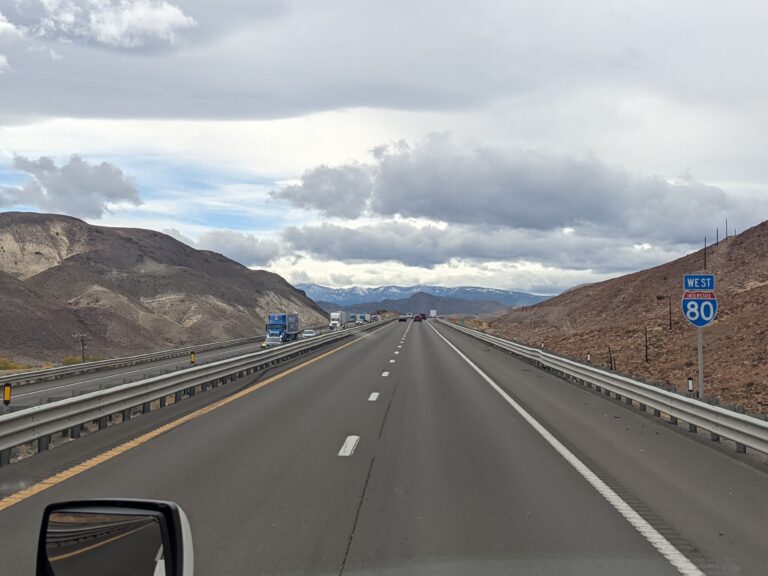How to Avoid Driver Fatigue While Trucking: Tips for Professional Drivers
Let’s talk about driver fatigue. This is an area that does not get enough attention in trucking. I have a spent a lot of time driving a big rig tired through the years. There are several contributing factors from my experience so let’s find out what they are.
The 14-Hour Workday
Yes, you heard that correctly. Truck drivers are expected to work up to 14 hours a day. Eleven of these hours can be for driving and the other three are for on duty. On duty activities include things such as fueling, loading, and pre-trips. The average traditional job has an 8-hour shift. But truck drivers work up to twice that amount every day. There is no wonder why there is a high turnover percentage in this industry. I worked 65-70 hours a week on average for several years and I can tell you over time it does wear you down. To top this off most truck drivers do not get any paid time off, but they do get a 34 hour break each week. Which if you count sleep equates to just 1 day off a week. There is some good news, however. A truck driver still has enough time each night to get 8 hours of sleep. And they need it trust me. Whenever I ran with less than 8 hours of sleep, I always paid the price of getting tired during the day usually in the second half of my shift and this can make the day seem a lot longer. So, if a truck driver works 14 hours in any given day and sleeps for eight hours, this leaves just 2 hours to take care of everything else. You will barely have enough time to eat, take a shower and get ready for your next shift. This is the life of most truckers. The most underappreciated job in America.
Schedule Flipping
This is all too common in trucking to not have a set schedule. Instead, a lot of companies will expect you to run during the day one week and then switch to nights the next. I can tell you from experience this is always hard to adjust too each time it happens, and you will be tired later on in your shift. For instance, when I ran for Amazon some weeks I would report in the afternoon for my shift and at other times late at night.
The 10-Hour Break Conundrum
Another way drivers fall under constant fatigue is if they finish earlier one day than usual. Let’s say the driver gets off at 3PM and starts their 10-hour break. The driver may be used to going to sleep at 9PM after running a typical day. But now that their 10-hour break starts at 3PM the clock is already ticking. The trucker may not be tired enough to fall asleep until later that evening. However, their driving clock resets at 1AM to start a fresh 14-hour shift. The driver just fell asleep at 9PM. But in 4 hours his alarm goes off to get up and start driving again. A lot of companies out there will expect the driver to get moving even if it is 1 AM in the morning. A driver in this scenario only had 4 hours of sleep though before his shift starts so in just a few short hours he will become fatigued and the only way to fix it is if the driver stops and takes a long nap. Most breaks for truck drivers are only around 30 minutes a day, however. So, there is no way a driver will be able to get enough rest to drive safely without being very tired. This happens every day in American, and this is why the DOT rules are not always good for your sleep cycle. They tell you when you can drive and when you have to sleep which causes drivers to run fatigued thanks due to constantly shifting work schedules.
Getting Tired in the Middle of Your Shift
This is all too common of an occurrence. Can you just pull over and take a nap? The reality is no in most cases. Your dispatcher is likely to text or call you and ask why your truck stopped. He will highly encourage you to get moving to meet the freight delivery schedule. When I drove for Amazon, we were discouraged from stopping for more than an hour at a time. We were reminded on our company safety meetings that Amazon would penalize our company under a point-based system if we had drivers stopping longer than 1 hour on the route. I had serious issues with this because all too often they would flip my schedule and I would end up starting a shift a tired anyway. By the middle of my shift, I started to become dangerous due to fatigue so I would pull over and take a nap. Whenever this happened, I would ignore Amazons rule because at that point I needed to rest long enough to feel safe enough to drive again. Usually around up to 2 hours. Being safe out there on the highway was a lot more important to me than Amazon docking our truck company with their point-based system. I had issues with this guidance because I knew this was making drivers out there drive tired who did not know any better to stop and get their rest thus causing fatigued drivers all over the country barreling down the highway.
How Tired Are You?
One thing trucking has taught me about fatigue and driving is that there are various levels of it. If you are a little tired but alert and responsive most of the time you can keep trucking. But if you find yourself having a tough time keeping your eyes open or that your reflexes are slowing down you need to pull over to a safe parking area as soon as possible. On any given day I would be tired of driving a little over halfway through my shift. At that point I really did not want to drive anymore. But if I had at least 8 hours of sleep the previous night, I knew I was good to go for the whole shift in most instances. There is no way to make up for lost sleep. You either get enough sleep or you don’t and if you’re driving a semi-truck you will need to stop and get some rest if your fatigued. There is no getting around this unless you want to create a hazardous situation for yourself and others on the highway.
Late Night and Early Morning Driving
There is a period of time in the early morning when your body’s natural sleep cycle will try to make you go to sleep. It varies a little for everyone but for me it kicks in around 4AM and lasts up to around 8AM. During this time like clockwork every morning I will get very sleepy while driving. This is the circadian rhythm and if you become a truck driver you will learn in detail when yours turns on and off every night. This is a powerful force that is hard to fight. Your body is telling you to go to sleep but you know you cannot because you are in the middle of your shift. What I usually had to do was stop and take a nap around 5 or 6AM if I was lacking enough sleep prior to my shift starting. My circadian rhythm was just that strong. This is another reason you will see the maximum number of trucks parked at rest areas and truck stops during these early morning hours. You are not the only one having your body’s natural signal telling them to get some sleep. To complicate matters it is quite common for there to be no truck parking during this time because about every trucker is trying to catch some sleep.
Running Nights
If you drive a truck or are thinking of getting into the profession. My advice from experience is to find a truck job that has a set schedule and one that does not work nights or flips your schedule every week. Some jobs may pay a little more for running a night shift but trust me the pay is not worth it. You will run tired and never get quite the same quality of sleep compared to if you were running a day shift.
Starting Your 10-hour Break Too Early
Always try to get at least 8 hours of sleep but if you are an over the road driver with varying start and end times this could become more of a challenge. If you start your 10-hour break too early this can cut into the 8 hours you need to sleep, so be smart about it and postpone your break a few hours, if possible, in order to be tired enough at the right time to catch enough sleep before your next 14-hour shift starts. Plan accordingly.
Driver Fatigue Summary
Driving fatigued is not worth it but sometimes is unavoidable due to the nature of trucking. For one reason your days will seem a lot longer when you drive tired. I am sure you have taken a long road trip before in a truck or a car and drove tired. These trips always seem to take longer, and you were too tired to enjoy the trip. As a professional driver if you get plenty of rest your day will go smoother and you will enjoy your job a lot more. Also, if you are driving tired you are creating a road hazard for yourself and everyone else around you. One of the best pieces of advice in trucking is to always get plenty of sleep before hitting the road.



